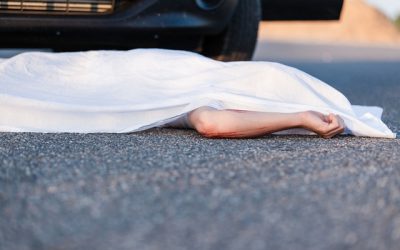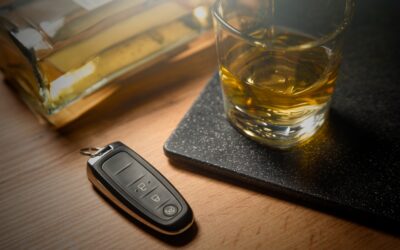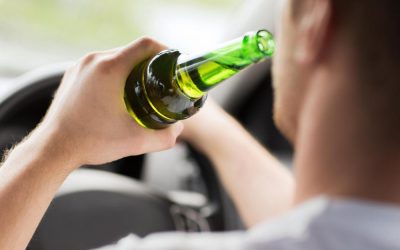
Law enforcement has a difficult job of protecting the safety and rights of citizens. Several state and federal laws regulate the manner in which police are allowed to stop, interrogate, search, and arrest individuals suspected of criminal activity. Below are 4 common traffic stop policing errors that may violate citizens’ rights and provide grounds to dismiss charges of wrongdoing.
Unlawful Traffic Stop
One of the most common policing errors is an unlawful traffic stop. Law enforcement officers are required to have a reasonable suspicion that you have committed a crime or a traffic violation. Reasonable suspicion is often confused with probable cause in traffic stops.
What Is the Difference Between Reasonable Suspicion and Probable Cause at a Traffic Stop?
The two standards of proof are “reasonable suspicion” and “probable cause.” Reasonable suspicion is the lesser standard of proof, requiring specific facts and rational inferences associated with a particular person or vehicle. Probable cause, on the other hand, needs a higher standard of proof and evidence to proceed with an investigation.
Both standards of proof are designed to prevent law enforcement from stopping or searching a vehicle based on a hunch. Most lawful traffic stops are done using reasonable suspicion. If an officer stops a vehicle without reasonable suspicion and subsequently finds evidence of a crime, it may be grounds to dismiss the charges.
For example, suppose an officer pulls a car over because they have a feeling the person has been drinking but otherwise has no reason to suspect they are intoxicated. During the course of the traffic stop, the driver is arrested on suspicion of a DUI. A DUI attorney in Los Angeles may have grounds to fight the charges based on an unlawful stop.
What Are Some Examples of Unlawful Stops?
Unlawful stops happen when law enforcement officers pull over drivers without sufficient evidence that a crime or traffic violation has occurred. It is unlawful to stop a person on the grounds of:
- Profiling: Profiling occurs when a police officer chooses a particular vehicle or person based on stereotypical characteristics as opposed to facts or reasonable suspicion. For example, it is unlawful for an officer to pull a driver over at a traffic stop simply for traveling late at night.
- Baiting: It is illegal for law enforcement to set up surveillance in an effort to catch an illegal activity without a particular suspect in mind. For instance, it is unlawful for the police to set up surveillance at a bar and pull over a leaving customer to find evidence of intoxication.
- Pretextual stops: Pretextual stops are illegal and difficult to prove. A pretextual stop occurs when a law enforcement officer pulls a vehicle over for a traffic violation with the intent of investigating a different crime.
- Anonymous tips: Anonymous tips for traffic violations can be considered murky territory. Typically, an anonymous tip that a driver has committed a crime is not sufficient to establish reasonable suspicion.
An exception to the above are DUI roadblocks. DUI roadblocks, or sobriety checkpoints, have long been the source of controversy over their constitutionality. Under the law, a DUI checkpoint in California must adhere to a strict set of rules.
Failing to Properly Administer Chemical Tests
Chemical tests, including blood, urine, and breath tests, can easily be tainted if not obtained and handled properly. This is especially true in cases of DUI arrests. Policing errors when collecting hard evidence can lead to false positives or unreliable results.
One common mistake is when a law enforcement officer fails to properly maintain the breathalyzer. All equipment is vulnerable to malfunction and flawed results if they are not properly maintained. A simple miscalibration can present skewed results or false positives.
Another example of an improperly conducted chemical test involves delaying a test. For example, if a blood sample is taken long after being stopped, the blood alcohol concentration (BAC) may have risen to an illegal point. Since alcohol is absorbed into the body at different rates, an accurate BAC is heavily dependent on the timing of consumption.
Improperly Administering Field Sobriety Tests
Field sobriety tests are an important aspect of a DUI arrest. Law enforcement officers will test a driver’s reaction time, coordination, ability to follow directions, and coordination. Generally, a field sobriety test consists of the following actions:
- Walk and turn
- Stand on one leg
- Count the alphabet backward
- Nystagmus test, otherwise known as a horizontal gaze test
- Finder-to-nose
Field sobriety tests are subjective and can give varying results. In addition, the outcome is heavily dependent and how an officer conducts the test. If the law enforcement officer moves too fast during the nystagmus test or conducts the walk-and-turn test on uneven ground, the results may be inaccurate.
Failing to Follow Implied Consent Rules
Another common traffic stop policing error is when an officer fails to follow the implied consent rules. Implied consent is the presumption that all drivers agree to follow the rules of the road, including submitting to a chemical test if suspected of a DUI.
However, motorists cannot be forced to give a sample for chemical testing. Instead, there are legal consequences should a driver refuse to submit to testing. For example, a motorist will likely have their driver’s license suspended.
Law enforcement officers must issue implied consent warnings before asking a driver to undergo chemical testing. An officer must warn motorists that while they have the right to refuse testing, the act of refusal can be used against them in court and result in license suspension. Failure to do so can be grounds for excluding the results of the test.
Contact a DUI Lawyer in Los Angeles Today
Policing errors during a traffic stop can lead to false positives and unlawful arrests. If you believe law enforcement committed a policing error during the course of your arrest, seek the help of a Los Angeles DUI lawyer today. Schedule a consultation to discuss the details of your case with one of our experienced DUI defense attorneys in California.






